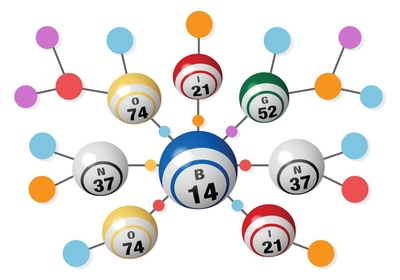 A lot of people might not know this about online bingo, but most of the time you are not just playing with other people on the same website as you.
A lot of people might not know this about online bingo, but most of the time you are not just playing with other people on the same website as you.
Depending on the site and how they are set up, you could be playing with people from loads of different bingo websites, despite all being in the same bingo room.
It’s not some crazy mind bending other dimension or anything like that, it’s all down to bingo networks.
Bingo networks enable games to offer bigger prizes because more people are playing them, but in some cases the network has for more to do with you and your money than you might realise.
In some cases, the bingo brand itself barely has anything to do with it.
You don’t have to worry, there’s nothing dodgy going on, but the way the online bingo industry runs means that players aren’t always sure exactly who they are dealing with.
What is a Bingo Network?
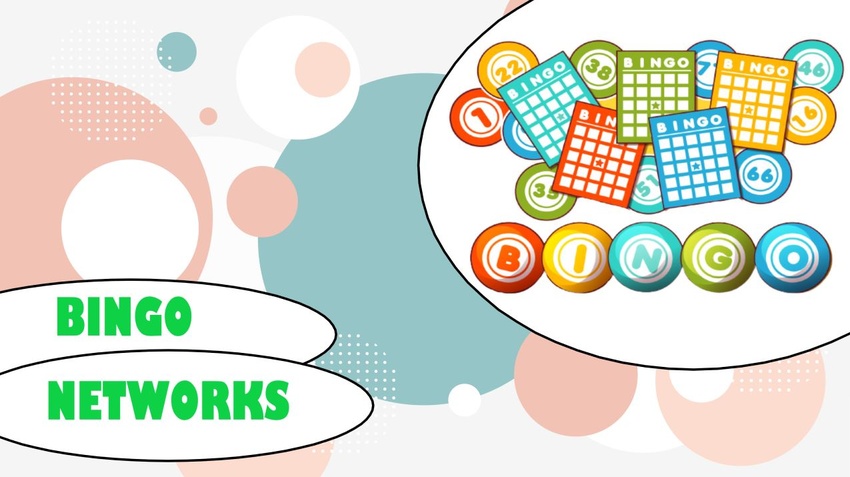
We have another page in more detail on this, but here is a quick rundown.
Building the software that runs online bingo games is really hard, and running an online bingo site is also really hard.
Not many companies do both of these things by themselves precisely because you need so much time, effort, and money to do it.
So what happens, is one company will build a platform and bingo network, and a bingo brand will come along and partner with that network.
So the bingo brand runs their own site in terms of what offers the run, the marketing, the theme etc, while the network provider builds the bingo rooms and makes sure the games are running smoothly.
Then the site ‘plugs in’ to the network and people can play the games from the network on that bingo site.
You can think of it like your laptop/phone and your internet provider.
Your provider deals with the complicated stuff like making sure the internet works and the signal strength is good, and supplies you with the equipment you need to use it; but once you are plugged in and connected, it’s up to you what websites you visit, what you upload and download, and how your desktop is organised.
We are over simplifying things because you don’t need to understand it in depth, you aren’t studying for a degree, but that is basically how it works.
There are a handful of sites which actually run their own exclusive bingo rooms, but not many.
However, even though most online bingo sites are part of a network, there are a few different approaches used that we will have a little look at.
How Bingo Sites Use Networks to Link Together
Since there are a few different ways that bingo sites can be linked via networks, we thought it would be a good idea to write about it in a few different sections.
We’re clever like that.
White Label Bingo Networks
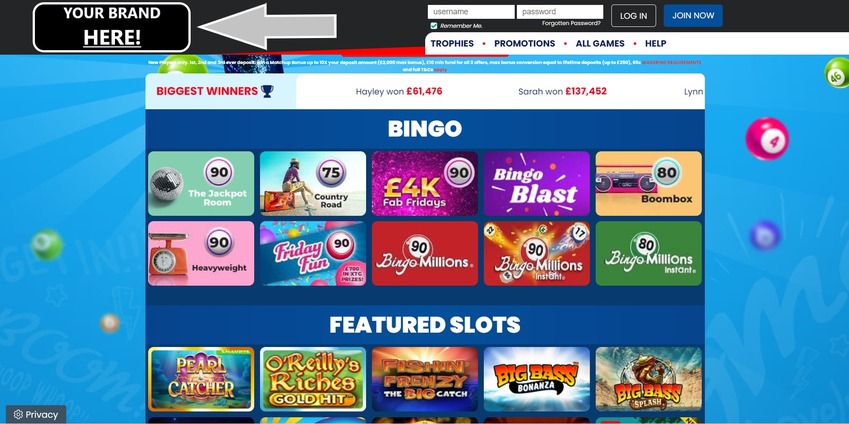
You must have noticed how many new online bingo sites pop up each and every year.
They usually have funny or silly (or sometimes totally nonsensical) names, and many of them aren’t there anymore if you look for them a few years later.
These are almost always ‘white labels’.
This means that a brand has decided they want to launch as a bingo site, but they don’t have the means to create the product themselves.
Therefore, they go to a white label provider who basically give them everything they need – a platform to build their website on, a bingo network to link into, they even operate using the white label provider’s gambling license.
It is the brand who are responsible for theming and marketing the website though.
Some companies own lots of brands that are all white labels, and the bingo network they have partnered with will even handle all of the payments and customer support, so you could be playing with a brand for years but never actually interact with anyone who works for them directly.
It’s a bit like a t shirt print on demand service – you supply the branding to the printer and then send customers to the website, but the printer takes the money, prints the t shirt, sends it to the customer, deals with returns, then just pays you your cut at the end of it.
You might know of the Jumpman Gaming network; they have literally hundreds of brands operating as white labels under them, which means hundreds of websites all linked into the same bingo network.
For players this is great if you like the network because it means there are going to be plenty of people playing at pretty much any point in the day, but the sites do all look alike, and there is little variety when it comes to offers etc.
Grand Battery Holdings (new name for Dragonfish) are another example of a white label provider/bingo network. There are more than 200 brands operating under their name, including 888 Ladies and 888 Bingo.
Third Party Bingo Networks
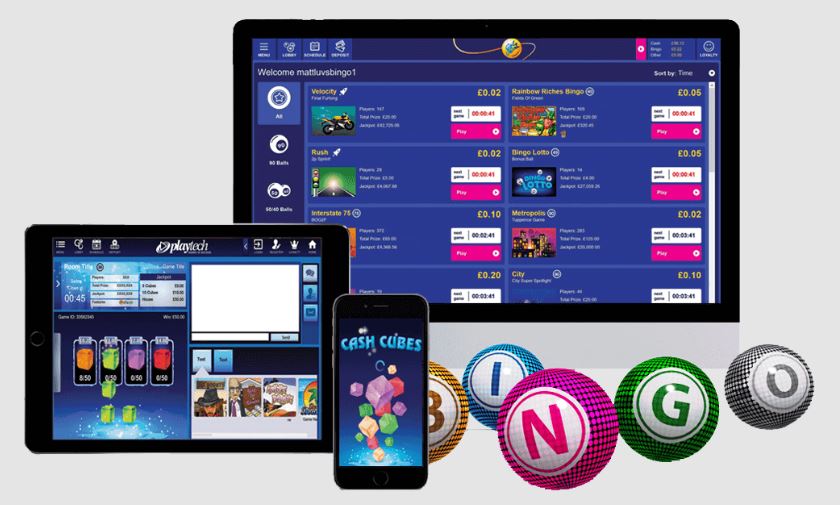
Serving as a happy medium for many brands, are third party networks.
Rather than doing pretty much everything for the bingo brand like a white label would, they let the brand plug into the network but the brand itself will do more of the heavy lifting such as payments and customer support.
Some really big names in the gambling industry use third party networks because, although they want to offer bingo alongside their other products (casino or sports betting for example), it wouldn’t be worthwhile for them to do it themselves.
However, they will have all of the infrastructure and contacts in place to be able to do much of what a white label would offer a new brand, so they only really need access to the network.
For example, a big name in the betting and casino world is Betfred – you have probably seen their shops on the high street.
They have their own marketing team and their own website, so while they wanted to offer online bingo it was never going to be the main focus of their business, so a third party provider was an ideal option here. A company who could provide the bingo product and basically just bolt it on to what they already had.
The Virtue Fusion network by Playtech is a popular option here, as it is a big name that brands and players trust, and indeed is the company that Betfred chose.
There are others though, like Pragmatic Play for example, although they are less prevalent for bingo in the UK.
With a third party bingo site you will still be playing in the same bingo rooms as players from other websites, but it is likely to be the brand itself who is looking after you and your money rather than the network provider.
Each brand can also have a little more control over exactly which bingo rooms they include on their site, so the whole thing is more flexible and can be tailored to an extent.
Proprietary Bingo Networks

This basically just means ‘owned by’.
Proprietary bingo networks will either be built by an existing company so that they can run their own bingo games across a number of different bingo sites that they also own; or they will have started as an independent platform and network before being bought out by a bigger company for the same reason.
If you have ever played bingo at Gala, Ladbrokes, Coral, PartyCasino, or Foxy, for example, then you will have been playing on a proprietary network.
This is because all of these casino and bingo brands run on the Electraworks bingo network, and they are also all owned by one umbrella company called Entain, who also own – you guessed it – Electraworks.
Therefore, Electraworks is a proprietary network because the company that owns it also owns the bingo sites where it is available.
Other examples of proprietary networks include Daub, which is owned by the Rank Group, who also own:
- Mecca Bingo
- Kitty Bingo
- Lucky Pants Bingo
And Relax Gaming, who are owned by The Kindred Group, who also own:
- Unibet
- com
…plus other brands in Europe.
The benefit for the group is that they can build things exactly how they want them and have full control over their bingo output across all the bingo sites they own, as well as not having to pay a third party to provide the network for them.
Independent Bingo Networks
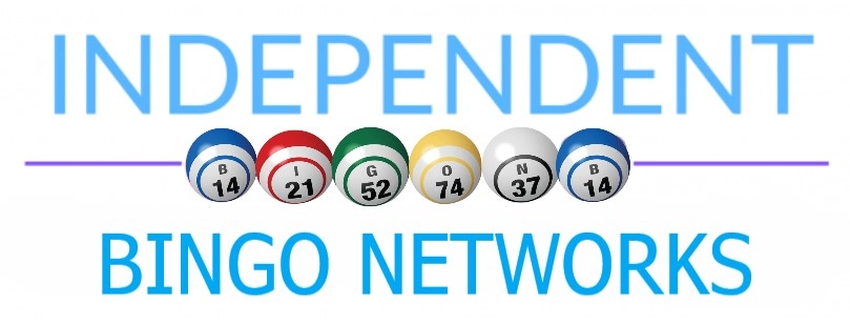
Running an independent bingo site and network is a very difficult task, which is probably why so few brands attempt to do it.
There are a few though, and while one or two have been successful a lot of them struggle to get enough visitors to the website apart from at specific times, meaning the sites are often very quiet.
In fact, a lot of independent networks only run their games between specific hours, such as between 5 and 9 when there are more people around with time to kill.
One example of a site like this is BingoCams, a genuinely interesting concept site where players connect their webcams and when a winner is announced their webcam is shown to the other players so they can share their ‘winning reaction’.
It’s a good site but definitely struggled for customers at points. Although it is owned by another company, Dazzletag Entertainment, it is the only company Dazzletag owns that offers bingo.
Tombola was probably the best example of a successful independent bingo network in the UK, attracting loads of customers every day. You could only play in Tombola bingo rooms from the Tombola website, there were no other sites linked to them.
The original owner decided to retire though and the business was sold to Flutter Entertainment in 2022.
Independents are good when they are busy and offer genuinely unique bingo games, but they can be unreliable in terms of numbers and therefore prize amounts.
To be clear then, unlike the sites in the categories listed above, independent networks are not linked in any way at all, but are unique to a single bingo site.
…so a ‘network’ is probably not the right word to use for them really, is it!?
